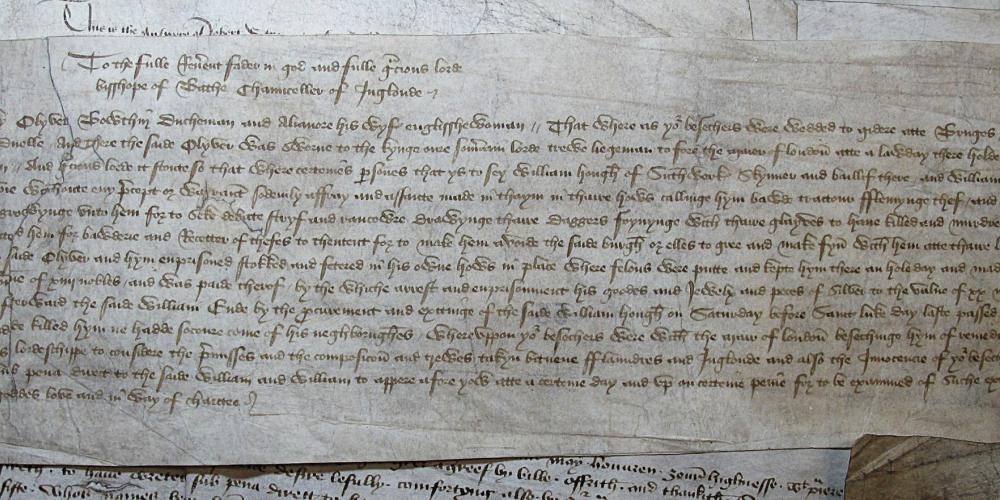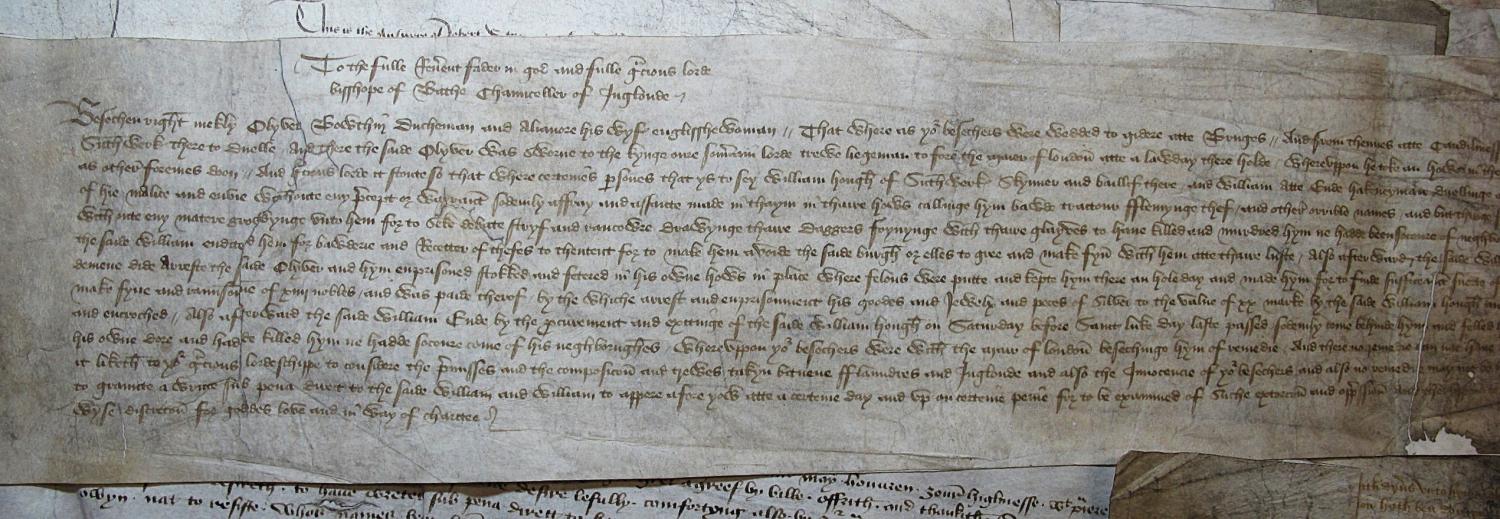
On World Refugee Day, June 20th, we reflect on the millions of people forced to flee their homes due to war, persecution, or insecurity. History shows us that tensions surrounding migration are nothing new. New research by historian Bart Lambert (Social History of Capitalism research group, Vrije Universiteit Brussel) and his colleague Josh Ravenhill sheds light on how political and economic crises in medieval London could suddenly turn migrants into scapegoats. In the 15th and 16th centuries, the word Fleming could suddenly become an insult — loaded with accusations of treason or criminality — whenever international relations soured. Their findings reveal how precarious the position of migrants could be, drawing uncomfortable parallels to our present day.
“There wasn’t constant xenophobia toward migrants,” says Lambert. “Hostility came in waves, triggered by political tension or economic uncertainty. Being different wasn’t enough on its own to make someone a target.”
Lambert and Ravenhill examined court cases from 15th- and early 16th-century London in which insults targeting someone’s foreign origins played a central role. Strikingly, this verbal abuse was rarely random: it clustered around specific events, such as the 1435 collapse of the alliance between England and the Burgundian Duke Philip the Good, who ruled over Flanders.

The National Archives (Kew), C1/45/55: petition from Oliver Bowthin, a “Ducheman” from Bruges, who was called “bawde, traitour, Fleming, thef and other orrible names” in London in 1439.
“Suddenly, Fleming became an insult simply because people from Flanders were associated with the betrayal of their ruler,” Lambert explains. “Not long before, it had just been a geographical label.” Other slurs referred directly to ongoing political upheavals. In the years after 1435, for instance, migrants from the Low Countries were increasingly accused of being “false” or “traitorous.”
One of the most striking cases is from 1439: a migrant from Bruges filed a complaint after being called a “bawd, traitor, Fleming, thief and other horrible names.” In his petition, he deliberately referred to himself as a “Dutchman” — a broader, less politically charged term — instead of “Fleming.” “He wanted to avoid the negative associations that came with that label,” says Lambert.
According to the study, terms like Fleming or Scot frequently shifted in meaning, depending on the political and economic climate. “They’re neutral words that suddenly become loaded when there’s conflict,” Lambert notes. “That dynamic is still very much alive today.”
The key conclusion of the research is that hostility toward migrants in this period was not a given. “There was no deep-rooted xenophobia,” Lambert says. “It was external conditions that led people to target migrants. And that gives us hope — because what emerges from context can also fade with it.”
Reference:
Lambert, Bart; Ravenhill, Josh. 2025 ‘Bawd, Traitor, Fleming, Thief and Other Horrible Names’ Immigration and Nationality-Based Insults in Late Medieval and Early Tudor London. VSWG Vierteljahrschrift für Sozial- und Wirtschaftsgeschichte, Volume 112, issue 1 https://doi.org/10.25162/vswg-2025-0001
Contact:
Professor Bart Lambert: 0483485216, bart.lambert@vub.be